Dehydration has been used for centuries to preserve foods such as dried fruits and jerky. By removing the water, you can store food in less space and for longer periods of time than you can with whole foods. Dehydrated foods often require either a considerable time or money investment, and after that, you must be sure that your food does not spoil. These are the steps you should take to store your dehydrated foods so that they will last you for years.
Leave packaged dehydrated foods in their original package, or place into a zipper food storage bag if it has been opened.
For home dehydrated foods, place it into a bag for use with a vacuum sealer (see Tip). Optionally, you can place the food into a zipper food storage bag and squeeze out as much air as possible before closing the zipper.
Insert the bag into the vacuum sealer machine, and use according to the directions for the appliance model to remove the air and seal the bag.
Place the bagged food in a cool, dry place for up to 1 year after opening. Possible places include basements, pantries or root cellars. The shelf life for dehydrated foods is similar no matter what type of food is preserved. By removing the moisture, you increase the shelf life of foods to 1 year. If your food is completely sealed in a vacuum or tightly closed zipper bag, it will last longer.
Keep dehydrated foods in the freezer if you live in a humid climate.
Related Articles
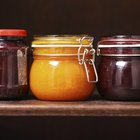
How to Store 6 Months' Worth of Food ...
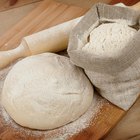
How to Store Flours & Grains Without ...

How to Prevent Moths in Long-Term ...

How to Boil Ziploc Bags

Bugs That Get Into Pantry & Food

How to Vacuum Seal Jars
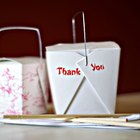
How to Reheat Chinese Takeaway
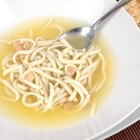
Does Canned Soup Go Bad?

Can You Cook Something Frozen in the ...
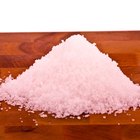
How to Use Sea Salt for Canning
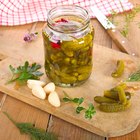
How to Dry Pack Long-Term Food in Mason ...

Rival Seal-a-Meal Vacuum Food Sealer ...
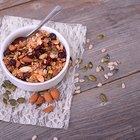
Does Freeze-Drying Affect Nutrition?

The Positive Effects of Using a ...
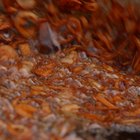
Guidelines For Refreezing

Types of Food to Vacuum Seal

Number of Times Food Can Be Reheated

Can You Cook Frozen Foods That Are Past ...

Does Dry Chili Ever Expire?

The Steps in Cooking Raw Foods in a ...